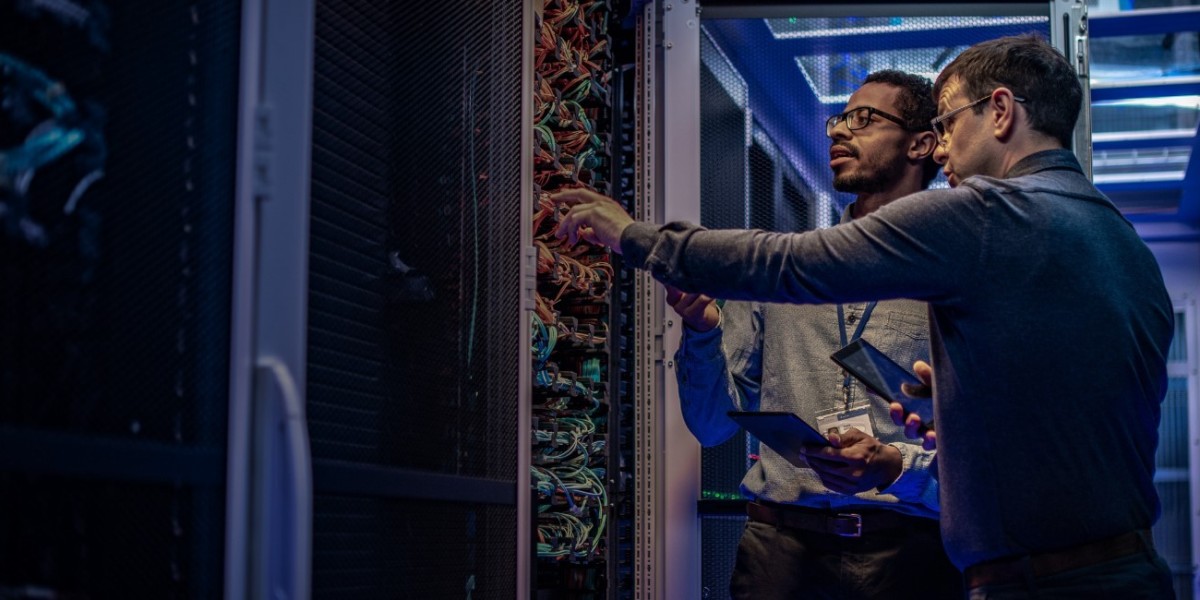Safeguarding IT Infrastructure in Dubai: Top Cybersecurity Measures
In Dubai, a city known for its rapid technological advancements and vibrant business environment, safeguarding IT infrastructure is crucial for maintaining operational integrity and protecting sensitive data. With an increasing number of cyber threats targeting businesses globally, implementing robust cybersecurity measures is essential. This blog explores the top cybersecurity measures to safeguard IT infrastructure in Dubai, ensuring your organization remains resilient against potential threats.
The Cybersecurity Landscape in Dubai
Dubai’s position as a leading business hub and technological innovator makes it a prime target for cyber threats. The city’s growing reliance on digital technologies, coupled with its strategic economic significance, means that cybersecurity must be a top priority for organizations of all sizes. The Dubai Electronic Security Center (DESC) and other regulatory bodies have established guidelines and standards to help businesses protect their IT infrastructure.
Key Regulations and Standards
Dubai Data Law (Law No. 26 of 2015): This law regulates the handling of personal data, ensuring data protection and privacy.
UAE Federal Law No. 2 of 2019: Covers the use of information and communication technology, including security measures for critical sectors.
National Cybersecurity Strategy: Provides a framework for enhancing the cybersecurity posture of the UAE, including guidelines for businesses.
Top Cybersecurity Measures to Implement
Establish a Comprehensive Security Framework
A well-defined security framework is the backbone of any effective cybersecurity strategy. Consider adopting internationally recognized frameworks such as:
If you looking for It support services in Dubai? If yes then visit ACS for more information.
NIST Cybersecurity Framework: Offers a flexible approach to managing and mitigating cybersecurity risks through guidelines and best practices.
ISO/IEC 27001: Provides a systematic approach to managing sensitive information, including security controls and risk management.
CIS Controls: A set of best practices for securing IT systems and data against prevalent threats.
These frameworks provide structured methodologies for identifying, assessing, and managing cybersecurity risks.
Conduct Regular Risk Assessments
Regular risk assessments are vital for understanding your organization’s vulnerabilities and threats. This process involves:
Asset Inventory: Cataloging all IT assets, including hardware, software, and data.
Threat and Vulnerability Analysis: Identifying potential threats (e.g., malware, ransomware) and vulnerabilities (e.g., outdated software, weak passwords).
Impact Assessment: Evaluating the potential impact of different threats on your business operations and data integrity.
By conducting thorough risk assessments, you can prioritize security measures and allocate resources more effectively.
Implement Multi-Layered Security Solutions
A multi-layered security approach ensures that multiple defenses are in place to protect against various cyber threats. Key components include:
Firewalls: Serve as the first line of defense by filtering incoming and outgoing network traffic based on security rules.
Intrusion Detection and Prevention Systems (IDPS): Monitor network traffic for suspicious activities and block potential threats.
Anti-Malware Software: Protects against viruses, spyware, and other malicious software.
Data Encryption: Encrypts sensitive data both in transit and at rest to prevent unauthorized access.
These layers of security work together to create a robust defense against potential cyber-attacks.
Enhance Endpoint Security
Endpoints, such as computers, smartphones, and tablets, are often targeted by cybercriminals. Strengthen endpoint security through:
Regular Software Updates: Ensure all devices have the latest security patches and software updates to address known vulnerabilities.
Advanced Endpoint Protection: Use endpoint protection solutions with real-time threat detection and response capabilities.
Device Management Policies: Implement policies for managing and securing devices, including mobile device management (MDM) solutions.
Securing endpoints helps protect against attacks that exploit device vulnerabilities.
Are you looking for an It AMC in Dubai? If yes then visit ACS for more information.
Implement Strong Access Controls
Effective access control measures are essential for protecting sensitive data and systems. Consider:
Role-Based Access Control (RBAC): Granting access based on user roles and responsibilities ensures that employees have access only to the information necessary for their job functions.
Multi-Factor Authentication (MFA): Requires multiple forms of verification (e.g., passwords and biometric factors) to access systems and data.
Least Privilege Principle: Limiting user access to the minimum necessary for their job functions reduces the risk of unauthorized access.
Strong access controls help prevent unauthorized access and limit the potential impact of security breaches.
Educate and Train Employees
Human error is a significant factor in many cyber incidents. Regular training and awareness programs are crucial for reducing risks. Focus on:
Phishing Awareness: Educate employees on recognizing and avoiding phishing attempts.
Password Security: Promote the use of strong, unique passwords and the importance of regularly updating them.
Safe Internet Practices: Provide guidelines for safe browsing and the risks associated with using public Wi-Fi.
Training employees to recognize and respond to cyber threats is a key component of your cybersecurity strategy.
Develop and Test an Incident Response Plan
An incident response plan (IRP) is essential for managing and mitigating the impact of cyber incidents. Your IRP should include:
Incident Detection and Reporting: Procedures for identifying and reporting security incidents.
Response and Containment: Steps for containing the incident and minimizing its impact.
Recovery and Communication: Strategies for restoring normal operations and communicating with stakeholders.
Post-Incident Review: Analyzing the incident to identify lessons learned and improve future response efforts.
Regularly test and update your IRP to ensure it is effective and ready for use in case of an actual incident.
Implement Regular Backups and Disaster Recovery
Regular backups and a disaster recovery plan are crucial for minimizing data loss and downtime. Key practices include:
Frequent Backups: Schedule regular backups to capture the most recent data.
Secure Storage: Store backups in a secure, off-site location or use cloud-based backup solutions with strong encryption.
Disaster Recovery Testing: Regularly test your disaster recovery plan to ensure it functions as expected.
A robust backup and recovery strategy helps ensure business continuity in the event of a cyber-attack or other disaster.
Stay Updated on Emerging Threats
Cyber threats are constantly evolving, and staying informed about the latest threats and vulnerabilities is crucial. Engage with local cybersecurity communities, such as the Dubai Electronic Security Center (DESC), and participate in industry forums and conferences. Collaborate with cybersecurity experts and peers to stay updated on emerging threats and best practices.
If you looking for an It distribution company in Dubai? If yes then visit ACS for more information.
Collaborate with Local Authorities
In Dubai, collaborating with local cybersecurity authorities and organizations can provide valuable resources and support. Institutions like the DESC offer guidance, tools, and assistance for businesses to enhance their cybersecurity measures. Leverage these resources to stay aligned with local regulations and best practices.
Conclusion
Safeguarding IT infrastructure in Dubai requires a proactive and multi-faceted approach to cybersecurity. By implementing a comprehensive security framework, conducting regular risk assessments, and adopting multi-layered security solutions, you can significantly enhance your organization’s defenses against cyber threats. Strengthening endpoint security, enforcing strong access controls, and educating employees are crucial for reducing risks. Additionally, developing and testing an incident response plan, ensuring regular backups, and staying informed about emerging threats will further bolster your cybersecurity posture.
In a city where innovation and technology drive progress, maintaining robust cybersecurity is essential for protecting your assets and ensuring business continuity. Embrace these top cybersecurity measures to navigate Dubai’s digital landscape with confidence and resilience.
Related Resources:
Cybersecurity Essentials for Dubai IT Infrastructure Projects
How to Set Up IT Infrastructure in Dubai for Educational Institutions
Cybersecurity Planning for IT Infrastructure in Dubai: A Strategic Guide



